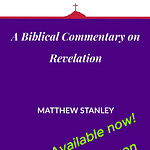Main Idea
The book of Judges reveals Israel’s repeated pattern of rebellion, oppression, repentance, and deliverance during the years between Joshua’s conquest and the rise of the monarchy, showing God’s enduring mercy even amid moral chaos and national decline.
Key Verse
“In those days there was no king in Israel; everyone did what was right in his own eyes.” (Judges 21:25)
Commentary
The book of Judges bridges the gap between the conquest of Canaan under Joshua and the establishment of Israel’s monarchy under Saul and David. It covers roughly 300 years of Israel’s early history, a time characterized by instability, tribal division, and moral decay. Israel was supposed to live as a covenant nation under God’s direct rule, yet the repeated refrain “everyone did what was right in his own eyes” captures the tragic drift from divine authority to self-rule.
The title “Judges” can be misleading to modern readers. The Hebrew word shophetim refers not to courtroom officials but to leaders raised up by God to deliver His people from oppression and to administer justice. These figures—men and women like Deborah, Gideon, and Samson—were regional deliverers empowered by God’s Spirit for specific crises rather than continuous rulers. Their stories reveal both the faithfulness of God and the fragility of human character.
Tradition attributes the authorship of Judges to Samuel, writing near the end of this era (around 1050–1000 B.C.), possibly using earlier records and oral traditions preserved among the tribes. The events themselves begin after Joshua’s death (Judges 1:1) and continue until just before Samuel’s prophetic leadership. This makes Judges a key historical and theological link between the books of Joshua and 1 Samuel.
Judges presents a recurring cycle: sin, servitude, supplication, salvation, and relapse. Each cycle begins with Israel turning away from God and worshiping idols. God then allows foreign nations to oppress them as judgment. When the people cry out in repentance, He raises up a judge to deliver them. After a time of peace, the people again fall into sin, repeating the pattern. This downward spiral grows worse with each generation, demonstrating that without godly leadership, even a nation blessed by God can descend into chaos.
Theologically, Judges exposes the tension between God’s holiness and His mercy. His justice demands punishment for idolatry and covenant-breaking, yet His compassion moves Him to rescue His people repeatedly. Judges also foreshadows Israel’s longing for a righteous king who would bring lasting order—a longing ultimately fulfilled in Christ, the true Deliverer and King.
Several key themes emerge throughout the book. First, the danger of spiritual compromise: Israel’s failure to fully drive out the Canaanites leads to intermarriage, idolatry, and moral corruption. Second, the faithfulness of God: despite Israel’s unfaithfulness, God continues to rescue them. Third, the necessity of godly leadership: when leaders honor God, the nation experiences peace; when they fall, chaos follows. Finally, Judges demonstrates humanity’s need for divine kingship. It reveals that no human savior can permanently fix what only God can redeem.
Life Application
The book of Judges is a mirror for every generation of believers. It reminds us that spiritual compromise never remains small—it multiplies, corrodes, and eventually enslaves. Israel’s decline began not with open rebellion but with small acts of disobedience and tolerance for sin. Our own lives follow the same pattern when we stop taking God’s commands seriously and begin doing “what is right in our own eyes.”
Yet the message of Judges is not merely one of failure—it is one of hope. Each time Israel cried out, God answered. His mercy outlasted their rebellion. This truth reminds us that no one is beyond God’s grace. Even when we fall repeatedly, His faithfulness invites us to return. The grace that raised up flawed deliverers like Gideon and Samson still reaches into our weakness today.
The cyclical nature of Judges also teaches us to seek transformation, not just relief. Israel often cried out because they were suffering, not because they were repentant. True repentance changes direction—it doesn’t just beg for rescue, it surrenders to God’s rule. For believers, that means identifying the areas where we keep repeating old patterns and surrendering them to the lordship of Christ.
Judges also challenges us to step forward when leadership is lacking. In a time when “everyone did what was right in his own eyes,” God still found willing hearts. Deborah’s courage, Gideon’s obedience, and even Samson’s final act of faith show that God can use imperfect people who are willing to trust Him. You don’t have to be flawless to be faithful—you just have to be available.
What Can I Do?
Identify one area of compromise in your life—something you’ve tolerated even though you know it dishonors God—and take a specific step this week to address it through repentance and accountability.
Ask God to use you as a light in a generation that has lost its moral compass. Be willing to stand for truth and justice, even when it costs you.
Ask Yourself
Where do you see the same cycle of sin, regret, and relapse playing out in your own life or in your community?
What does Israel’s repeated failure teach you about the dangers of partial obedience?
How does God’s mercy throughout Judges encourage you about His patience toward your own weaknesses?
Why do you think God chose such flawed people as His deliverers? What does that reveal about His character and His purposes?
What kind of leadership does our world most need today, and how can you model that where God has placed you?
Guided Prayer
Thanksgiving: Thank God for His faithfulness through every generation. Thank Him for never abandoning His people, even when they stray, and for the mercy that always invites us back.
Intercession: Pray for spiritual renewal in your community and nation, asking God to raise up godly leaders who will guide His people toward righteousness and truth.
Petition: Ask God to reveal areas of compromise in your heart and to give you courage to obey Him fully, breaking any cycles of sin or complacency in your life.
Confession: Confess the times you’ve done what was right in your own eyes instead of seeking God’s will. Acknowledge where you’ve been content with surface-level repentance rather than true surrender.
Praise: Praise God as the ultimate Deliverer and Judge who rescues, restores, and reigns with justice and grace. Worship Him as the faithful King who will one day end every cycle of sin with His everlasting righteousness.








